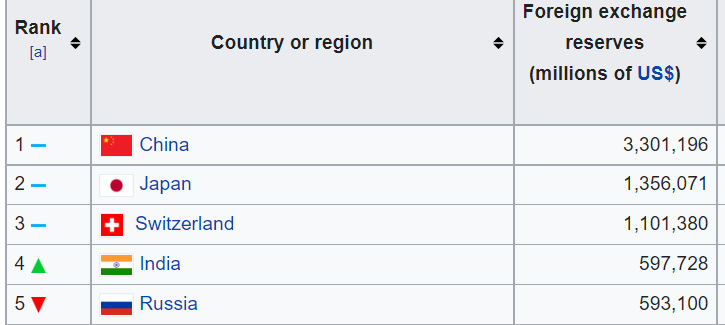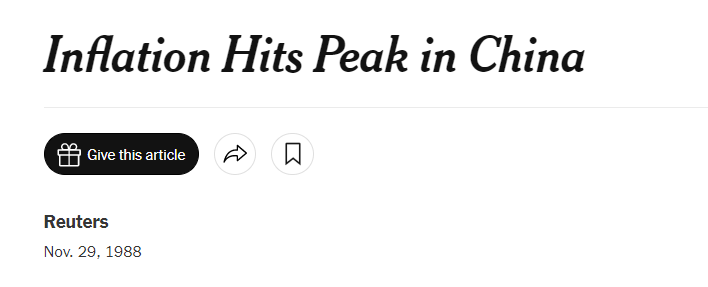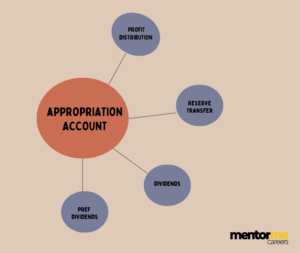Last updated on June 7th, 2023 at 04:05 pm
There was a dialogue from the movie RHTDM ( Rehna He tere Dil Mein). Where Saif Ali khan says to Maddy, at least I will earn in dollars even if I am a janitor!Looking at it this way, it feels as if the higher the value the better because it means we are 75 times richer.Well, I would break it to you right away and say not necessarily always and in many ways it’s actually detrimental.So, let’s begin this easy discussion on money appreciation.
Money Appreciation Basics
Without making this more complicated than it truly is, currency appreciates or depreciates based on demand and supply.
Now what that means, can be answered with who’s currency gets used to buy and who’s currency gets used to sell.
For example;
- A has a country called as AA & B has a country called as BB.
- AA is known for providing cheap labour.
- BB is known for producing Tea.
- AA needs 1kg of tea every year at INR-AA 500
- BB supplies AA with cheap labour at INR-BB 200
Now, pay close attention to what is happening here. AA overall seems to be selling less and buying more.
Which means, that BB needs less of AA currency and AA needs more of BB currency to make this happen.
So BB’s currency is more in demand and hence BB currency will appreciate and AA currency will appreciate.
Simply put, currency appreciation or depreciation is very similar to the price of commodities. More its gets used, more it appreciates.
Why does USD Dominate?
Well, its more than just saying that US has made its currency the most tradable currency.
How can I command that respect, without its my fundamentals being extremely strong.
Which is to say that U.S is so reliable that we bank on its currency stability.
In our example above, BB’s currency could be bought in excess by AA to actually treat it as a reserve.
So, if the AA’s currency value starts ddepreciating, then AA could start selling the BB currency thus making the BB currency go down and AA’s currency appreciate.

The Crypto Effect
Recall, how Bitcoin and other cryptocurrencies have rattled the central banks around the world.
Imagine, a day when people stop using USD as the bed rock of transactions and start transacting in Bitcoin entirely.
Now, why is that a threat to the U.S economy and other countries?
Firstly there would be no need for the national currency itself.
Secondly, since the national currency gets affected by so many other factors apart from just demand and supply, hence no goverment would have any real control over it.
The good bad and ugly of Money Appreciation
Nothing comes without its effects, because everything is related to everything.
Since to say that the strong USD has had the best effects on U.S in every way would be an over statement.
For example, the higher currency value has;
- Made the U.S labour expensive
Which means, if I was running a company in India and I wished to open up an office in the U.S.
Then it would cost me more because now I have to pay more for the same work.
So what do I do?
Well, simple! I would open the office but send labour from India to the U.S.
- The U.S products are expensive
If I am in India, and I want to buy an Iphone which gets manufactured in the U.S then its expensive for me.
So what do i do?
You guessed it right!
I would buy from China, or rather I would buy an Iphone manufactured in China.
- Increased Unemployment
On the other hand if you were an entrepreneur running a business in the U.S and hiring people is expensive.
Then I could outsource many of the activities to India or phillipines.
So, Jobs gone too!
China’s Shrude Strategy: Money Appreciation Tactic
China is china and think of China as your shrewd cousin.

To tell you about this story in a very simple language, where China used its monetary policy to the best use you need to know what was going on then.
China was going through some horrible inflation
- 19% in 1988
- 24% in 1994
Can you imagine, everything becoming more expensive by 20% every year?
Now put yourself in the shoes of Li Guixian and create your plan of action to control this?

If I were him, I would have the following options
- I could increase interest rates
Lol, that’s the thing with monetary policy!
It’s got only one option, play around with interest rates.

Which by the way, the country had already done but it had no effect.
So, the only option to curb the inflation and at the same time play the magic was to devaluae the currency by 33% in 1995.
Voila! Bang, the inflation dropped over night!

I am not sure, whether to call it evil or a necessity at that moment. So I’ll call it as a evil necessity.
What about India?
Well first of all, India’s inflation scenario was not as bad as China, which means it was at around 10%.
Now don’t clap so fast too, India didn’t have superb growth either.
Growth and Inflation tends to go hand in hand.
We were still sleeping untill 1991, at least in the sense of business.
So, the question of using such tactics were probably 20 years away.
At the same time, the funny thing was that India’s currency was devaluating by itself.

Ain’t that crazy? No need to devalue, I am already devaluating every year anyways China!

But don’t tell me this question hasn’t come to you? Because even after 27 years, why is our currency still going down?
Simple, oil imports! and no real strong exports apart from labour hours.
To tell you the truth, we haven’t really done anything great business-wise.
We can’t really claim that we are good in information technology because then you would have to give that credit to the colleges.
So the real credit goes to biology.
I won’t explain that any more than that, please read between the lines.
RBI Interference
Based on the discussions and data I gave you until now, you may be inclined to think that we have absolutely been on the straight path.
However, Indian currency markets have some skeletons in the closet too.
Infact India is one of the many countries in the list of currency manipulators of the U.S Treasury department.
In 2018, RBI sold $15 billion worth in the open market to control the downfall of ruppee.
So, why does India do such things, which are usually frowned upon?
Simple! We are net importers, which means a depreciating rupppe would mean expensive imports.
Specifically that means, since India is a heavy importer of crude oil and even a slight depreciation in Ruppe means a big hit on the imports and inflation.
For the same reasons, India has the been always on the mission to collect a lot of dollar reserves. Infact as on 2021, India had $523 Billion worth of forex reserves.
How can currency appreciate organically?
The answer to this lies on fiscal and overall country strategy. China hasn’t really grown because of just devaluation but also building the infrastructure to promote exports.
Similarly Japan, U.S, Germany did not become great because of cheap currency tactics but the same old uncle named “Hard work”.
We need to manufacture more than agriculture and IT to become a strong currency. Also the culture needs to change from short term fire management to long term growth of the country overall. This would mean:
- Creating incentives for manufacturing
- Spend on research and technology
- Spend on education
- Work on meritocracy
- Spend on infrastructure
- Promote start ups
Now I am not saying that India is not doing anything but the growth policy needs to sustain beyond elections. We can’t have great policies for 5 years and then again a u turn on the strategy. China didn’t become china by constantly changing its strategy.
So that was an unconventional method of showing you the mechanics of currency, so that we also change the way we think about education. If you do like these kind of methods of learning then check out our financial modeling program for investment banking placements




